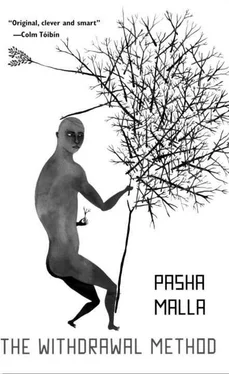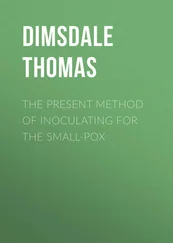The marriage was consummated purposefully, with Franciscka bent over and staring out the window while Kempelen grunted and thrust from behind. When he finished with a mighty holler, she pulled away, squatted, and Wolfgang watched while his ejaculate was emptied on a stream of urine into the chamber pot beside their bed.
Franciscka's royal duties relinquished, she moved into the counsellor's villa. For the first time in his life, Kempelen felt something he could not identify in certain terms, an uneasiness that devolved into confusion. That consecratory first night haunted him, how Franciscka had indifferently flushed his seed from her body, and their day-to-day, wordless existence resonated with a similar emptiness. She turned her cheek obediently for a goodbye kiss every morning, but he could sense her gazing off into the distance over his shoulder; she yielded nightly to his advances, but in an almost conciliatory way. Any attempt at communication was greeted with a mute, blank stare.
The answer Kempelen had been looking for still seemed to elude him, and he became preoccupied and began to neglect his duties as counsellor. His first project as a married man, a mechanical system meant to raise and lower the bridge into town, collapsed under the weight of its first crossing (two chickens drowned).
A day later, the empress sat him down at the chessboard and asked what was wrong.
"Something must have been amiss with my calculations," he offered.
"Oh, it's not just that, Wolfgang. What's the matter?"
Despondent, Kempelen dropped his pieces back into their box. "I can't play today," he said, then struggled to his feet and left the room. His limp seemed more pronounced than it had ever been; Maria Theresa watched him hobble away and realized something needed to be done. The empire depended on it.
A FEW NIGHTS LATER, Kempelen came home to discover Franciscka collapsed under the kitchen table, a half-drunk cup of cider puddling beneath her on the floor. Kempelen rushed to her side, knelt, and rolled his wife over — her lips were colourless, her body rigid, her brown eyes stared blankly heavenward.
The court coroner reported that Franciscka's heart had just stopped, like a watch smacked with a hammer. Kempelen's demands to perform a private autopsy were denied. Frustrated more than heartbroken, the counsellor sank into a deep depression, refusing to emerge from his home. After nearly a month of this self-imposed exile, Maria Theresa herself made the trip along the path through the woods to Kempelen's villa.
Skirts hitched, she banged on the door. "Wolfgang!"
No answer.
"Wolfgang, please, it's me. You've got to come out. The empire needs you."
Maria Theresa pressed her ear against the door. A cough. Then, muffled: "Send me away."
"Sorry?"
"Send me away from here. I don't care where. A place where I can make sense of things. A place where things make sense."
The empress paused. Something rose in her throat. Swallowing hard, Maria Theresa willed it away and spoke to the door. "As you wish, Wolfgang."
For the next dozen years Kempelen found himself shuttled all over the empire, arriving in locales where his brains were needed for problems agricultural, scientific — even judicial. In Transylvania, he concocted an ingenious pneumatic system for draining the region's flooded salt mines; in Banat, he undertook the role of detective and produced evidence to free a man wrongly convicted of murder.
During this time, Kempelen established a base back in his hometown of Pressburg. He found himself missing life in the capital but could decipher no concrete reason to return — after all, his services were in great demand elsewhere around the empire. He kept to himself, and loneliness haunted him. Without a worthy opponent, he began to build simple automated chess pieces with the gears and wheels of old watches: when prompted, they would walk across the chessboard to the appropriate square. It was an attempt, he knew, to make life of his own, to create something engaging beyond simple machinery.
Still, that life seemed hollow. Although the clockwork figures paraded around like little men, they were no real company, they provided no joy. At work, he performed his tasks methodically, without emotion, while everyone else celebrated his genius. Above all, when he thought about Franciscka's death he felt only curiosity — never sadness, and that seemed deeply wrong. It was clear, now, that he had never loved her — he had never loved anyone. He didn't know how to; he was a man trapped irrevocably in a realm of logic, distant from the enigmas of human emotion. Playing nightly chess games against himself, watching his automata march from one square to the next, the empire's prized counsellor felt the answers to life's greatest questions receding beyond his grasp.
IN 1769, KEMPELEN received word that the empress wanted him back in Vienna. "Come quickly," read the message, "this is a very urgent matter."
Fearing the collapse of the empire was at hand, Kempelen abandoned his work and made the trip back to the palace. Empress and counsellor met at their old spot in the gardens; she took Kempelen's hands in hers, seeming excited and flushed. It struck him, suddenly, that she might be in love with him, and that this rendezvous was designed to profess her adoration. That old sense of pride, long absent, swelled within him as he awaited her amorous confession.
"Wolfgang!" she exclaimed. "There is a French conjuror coming to Vienna. He was here last year, and the year before, and his tricks are baffling. The entire court was in an uproar. No one can figure out how he does it — rabbits from hats, scarves appearing from up shirtsleeves, people sawn in half. And then we thought of you!"
"That's why you ordered me here?"
"Yes! He's performing tonight. So you must come and watch and then let us know how everything's done. Typical Frenchman, the bastard thinks he's got us fooled — but he has no idea that we'll have the cleverest man in all of Europe there tonight."
Kempelen gazed at the empress: a wild, expectant look filled her eyes. He bowed, defeated, and when he spoke, his voice was a thin, reedy whisper. "Pleased to be of service."
That evening the entire court gathered in the main ballroom. A thin, mincing man with an even thinner moustache performed some simple illusions, addressing the bewildered spectators in a Parisian accent rife with disdain. Kempelen, ire rising with each trick, muttered the fellow's secrets into Maria Theresa's ear while Francis Stephen whooped and applauded one seat over. After a finale that caused Kempelen to slap his own forehead in incredulity, the Frenchman bowed to a rousing ovation from all in attendance — excepting, naturally, the empress and her prize counsellor. When the applause receded, Kempelen stood and angrily addressed the crowd.
"This fellow is a fraud," he announced, his tone furious. "You people sicken me, how readily you allow yourselves to be fooled."
The magician spluttered and flapped his arms, his face reddening. Kempelen held up a finger. "Not only will I happily reveal how each of these illusions works to anyone who asks, but I am going to dedicate the next few months to creating something that doesn't need to dupe its audience with sleight of hand — something greater than human beings, something more clever, more cunning."
The Frenchman fled the room. A hush fell upon the crowd as they waited, terrified, for whatever might come next. Kempelen looked down at Maria Theresa seated beside him. In his eyes was something she had never seen before: fire, passion. It frightened her. "Give me six months," he told the empress, and then limped out of the hall.
HAVANA,1838
UPON ARRIVING IN Havana, Johann Maelzel had told the rest of the crew that he and his assistant, Schlumberger, had official business to attend to in Regla. After overseeing the unloading of the Turk and its automated brethren, the two men stole off into the night to a quiet bodega across the river recommended as "friendly" by an ageing queen back in New Orleans. With a single candle burning between them on the table and a cloud of mosquitoes whining through the air, they sat watching one another nurse their glasses of rum before Maelzel finally spoke.
Читать дальше












